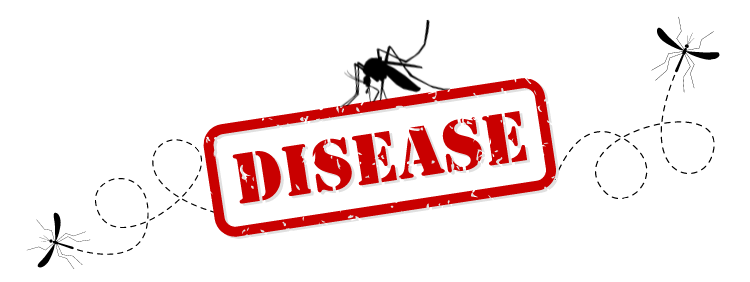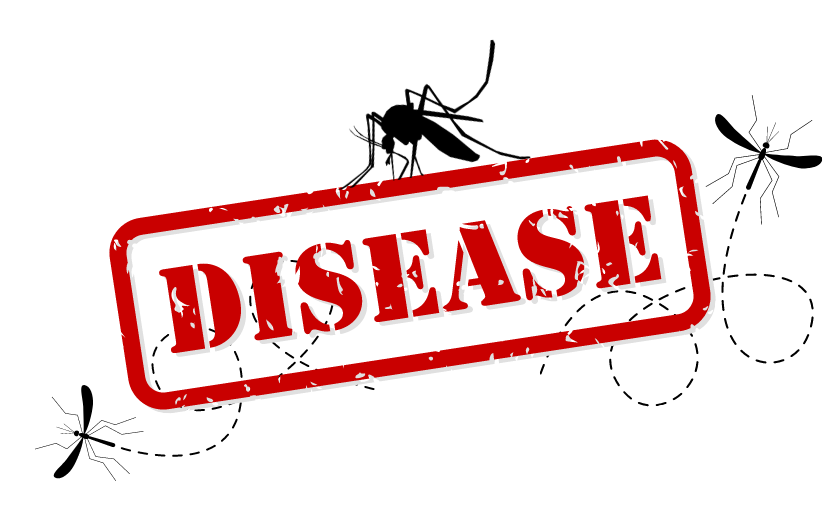
Summer is a time for enjoying the outdoors in Canada, but mosquito bites can ruin outdoor activities such as cookouts, stargazing, and hikes. However, mosquito bites are not only annoying and unpleasant with their itching and swelling. They can also spread diseases. Mosquito control in Guelph may help to protect you from all the unfortunate consequences of mosquito bites, including diseases.
Here are some of the diseases that people most often contract from mosquito bites. Not all of these diseases are common in Canada, but they cause a great deal of suffering around the world. Furthermore, because of climate change, the range of some of the mosquito species that carry these diseases could change. In other words, even though they may not be common in Canada now, the future is unpredictable.
1. West Nile Virus
West Nile Virus is responsible for most cases of mosquito-borne illnesses in Canada. For most people, the infection is mild. In fact, most cases in humans are asymptomatic. However, some people experience symptoms such as fever, rash, gastrointestinal distress (e.g., vomiting or diarrhea), and joint pain. Rarely, West Nile Virus can cause severe complications affecting the central nervous system. These complications can be fatal, and even if they are not, symptoms may linger long after the viral infection resolves.
2. Malaria
Malaria is one of the most common mosquito-borne illnesses in the world. Though rare in Canada, the chance of contracting malaria from a mosquito bite threatens approximately half the world’s population. It is especially widespread in South America, South Asia, and sub-Saharan Africa, where it is a leading cause of death among children. Sleeping under mosquito netting, a tightly woven mesh through which the insects cannot get through, is often the preferred form of malaria prevention.
Symptoms of malaria include chills, fever, vomiting, and headache. The name comes from Italian meaning “bad air,” as that was how it was believed to have spread before it was proven to spread by mosquito bites. At one time, malaria was also known as “ague” because it was common in marshlands where mosquitoes tend to breed.
3. Rift Valley Fever
Diseases are sometimes named after the area where they were first identified. This is the case for Rift Valley fever. Common in certain parts of Africa, it was named specifically for an area in Kenya. Rift Valley fever is also found in parts of the Middle East, particularly Yemen and Saudi Arabia. Long-term effects of Rift Valley fever include damaged vision. Symptoms include weakness and dizziness.
4. Zika
Zika virus is especially common in Southeast Asia and Central and South America, including the Caribbean. Symptoms include red eyes, joint pain, fever, and rash. Most people experience only mild symptoms and recover completely. Hospitalizations and fatalities from a primary infection with the Zika virus are rare.
Nevertheless, the spread of the Zika virus is concerning because if contracted during pregnancy, it can cause birth defects in an unborn baby. Microcephaly is a serious birth defect closely linked to the Zika virus. Babies with microcephaly have small heads and underdeveloped brains. Many infants with microcephaly die, and others experience physical and mental disabilities.
5. Snowshoe Hare Virus
This virus was first discovered in 1958 in the blood of a snowshoe hare in the U.S. state of Montana. Canada was home to the first human case during the 1970s. Snowshoe hare virus causes dizziness, headache, rash, and vomiting. As with some of the other mosquito-borne illnesses, it can cause inflammation of the brain, a serious and potentially deadly side effect.
How Mosquito Control in Guelph Helps Prevent Illness
Reducing the number of mosquitoes on your property helps reduce your chance of getting bitten, which in turn lessens the chance of exposure to West Nile Virus and other mosquito-borne illnesses. Learn more about Truly Nolen Canada’s solution for mosquitoes.
